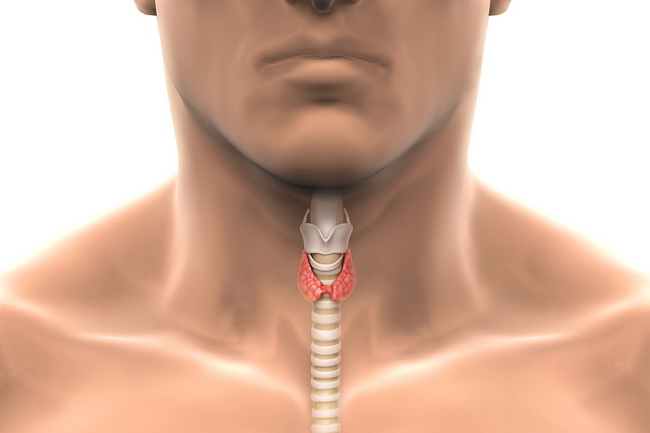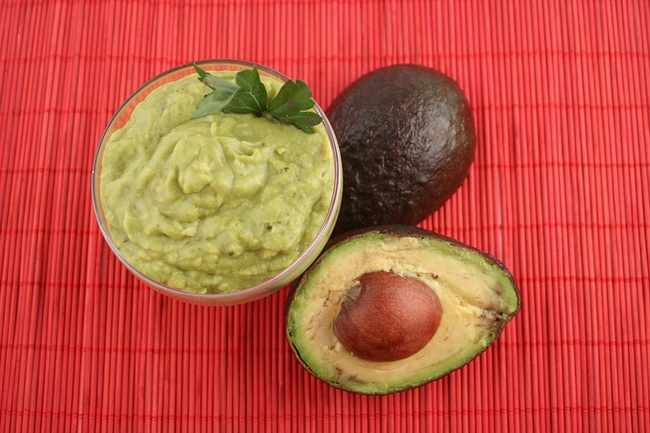- Make It Yourself Lavender Heart-Shaped Bath Bombs!
- 20 Things You Never Knew About “Down There”
- 12 Best Foods For Those Suffering From Arthritis Pain
- 12 Personal Hygiene Mistakes Almost Everyone Makes (Mom Never Told You About #4!)
- 15 Medicinal Plants And Herbs From The Cherokee People
- 12 Mind-Blowing Benefits Of Drinking Coconut Water During Pregnancy
- 12 Outstanding Winter Foods That Won’t Fatten You Up Like A Christmas Turkey
10 Ways to Stimulate an Underactive Thyroid Naturally

Photo credit: bigstock.com
Your thyroid is a small but very important gland which produces hormones that have an impact on every organ, cell, and tissue in your body. Just a few of the things your thyroid influences are your body temperature, heart rate, metabolism, body weight, and energy production.
It has been estimated that about 27 million Americans suffer from some type of thyroid disorder, with about 50 percent of these people going undiagnosed. Your chance of developing a thyroid disorder increases as you age. Women are more likely to be diagnosed with thyroid problems than men, although either gender can develop thyroid problems.
When your thyroid gland doesn’t produce enough hormones your doctor will call it hypothyroidism. Common causes of hypothyroidism are exposure to heavy metals or radiation, food intolerances, even hormone imbalances. Many people go undiagnosed because the symptoms are vague and are often overlooked by doctors.
Some common symptoms of hypothyroidism are weight gain, headaches, dizziness, dry skin, extreme fatigue and depression, heavy or irregular menstruation, sensitivity to cold and cold fingers and feet.
Hypothyroid drugs are quite addictive and most people who start them are forced to take them for the rest of their lives. There is an alternative, however. The process is slow, but you can kick start your thyroid into working properly once again. If you are currently taking medication, never stop taking it without speaking to your doctor first. Stopping your medication suddenly can cause you even more problems, including making your thyroid extremely sluggish, so check with your doctor first.
After you have spoken to your doctor, you can try the following 10 steps to reset your thyroid so that you can reduce or completely eliminate your medication.
1. Coconut Oil
This is perhaps one of the best ways to start resetting your thyroid. Coconut oil is made up of medium chain fatty acids which help with metabolism and weight loss. Coconut oil can also raise base body temperature, which is good news for all those people with cold hands and feet! Most people find that two tablespoons each day is sufficient. This isn’t a “cure all,” but rather a part of a completely new way of eating and a new lifestyle that is going to help your thyroid function.
2. Revamp Your Diet
In order for your thyroid to work properly, you need to overhaul or revamp your diet. First, reduce as much as possible (or eliminate entirely) all artificial sweeteners, food additives, refined grains, sugar, processed foods, junk foods, even fast foods. Replace those with a more natural, organic diet that is mainly plant based with plenty of healthy fats, such as butter, nuts, seeds, some organic meats, and wild caught fish. Eat a natural, whole food diet as much as possible to remove toxins from your body and give it the nutrition it needs. Proteins will help your body to move the hormones that your thyroid makes throughout your entire body.
Continue to Page 2

Photo credit: bigstock.com
3. Iodine
Iodine is a common treatment for hypothyroidism. Most people get their iodine through salt, but those with hypothyroidism need a more stable source of iodine. Ask your doctor for a recommendation as to which brand and the proper dosage. You can also get natural iodine by including more fish, krill oil, sea vegetables, eggs, mushrooms, summer squash, garlic, sesame seeds, asparagus and lima beans in your diet.
4. Balance Estrogen Levels
Too much estrogen in the body slows down the function of the thyroid. Avoid sources of estrogen such as non-organic meat (conventional meat contains powerful growth hormones), dairy products, and birth control medication. You should also remove all soy products from your diet as these contain phytoestrogen, which can cause serious hormonal imbalances, upsetting the delicate balance of the thyroid.
5. Consume More Probiotics
Many studies have linked the immune system, including malfunction of the thyroid, with the digestive system. In fact, about 90 percent of your immune system lies within the digestive tract. Keeping your gut flora healthy and balanced should become a priority. Eat more foods that contain healthy probiotics, such as yogurt and kefir. You can also consume plenty of fermented foods such as sauerkraut, kimchee, pickles, and kombucha, which all contain tons of probiotics. You can also take a probiotic supplement after speaking with your doctor.
Continue to Page 3

Photo credit: bigstock.com
6. Healthy Fats
When you don’t consume enough healthy, natural fat and cholesterol, it can lead to imbalances in levels of hormones, including thyroid hormones. Healthy fats and cholesterol are precursors for the development of hormones. Don’t be afraid of fat! It is essential to your body. Include plenty of healthy fats in your diet, such as olive oil, avocados, flax seeds, nuts, cheese, yogurt, nut butters, and nut milk. The type of fat you should avoid is trans-fat, such as corn and canola oil. Hydrogenated and highly processed oils need to be avoided at all times.
7. Watch Out for Goitrogens
Goitrogens are foods that interfere with the function of the thyroid and tend to cause enlargement of this important gland. Foods that contain Goitrogens include cabbage, broccoli, cauliflower, kale, Brussels sprouts, kohlrabi, millet, radishes, peanuts, watercress, strawberries, and peaches. You don’t have to remove these foods completely from your diet, but do not consume large quantities of them or even eat them regularly.
SEE ALSO: 11 Dangerous Toxins that are Harming Your Thyroid
8. Address Vitamin Deficiencies
Although a simply vitamin deficiency will not cause hypothyroidism, not having sufficient amounts of essential nutrients can make your symptoms worse or even completely disable your body’s recovery system. The most common nutritional deficiencies are:
- Vitamin D – Be sure that you spend at least 30 minutes in the sun (early morning sun is best) to get plenty of hormone-healthy vitamin D. Ask your doctor to check your blood for vitamin D. Normal levels should be between 50 and 80ng/ml. Anything below 50 can cause hormone dysfunction and below 32 ng/ml is downright dangerous.
- Omega-3 Fatty Acids – Think of omega-3s as the building blocks of your hormones. You can take supplements or eat more foods that naturally contain omega-3s, such as grass fed meats, eggs, fish, seeds, and nuts.
- Glutathione – This powerful antioxidant supports and strengthens the immune system. It can also protect and heal the thyroid gland. Foods that increase this antioxidant are peaches, asparagus, garlic, spinach, squash, grapefruit, and eggs.
Continue to Page 4

Photo credit: bigstock.com
9. Remove Hormone Disruptors
There are many things in our modern day life that interrupt our hormone production, confusing our body and our thyroid function. Remove the following from your life:
- Anti-bacterial soaps
- Shampoos and other beauty products that contain triclosan
- Non-stick cookware (Teflon)
- BPAs, which are often found in plastic bottles and canned foods
- Heavy metals
Detox from heavy metals by consuming turmeric, milk thistle, and cilantro to naturally remove them from your body.
10. Avoid Gluten
We already mentioned that you should eat a healthy diet and avoid certain foods such as soy, but we wanted to be sure to mention gluten. Many people have a sensitivity to wheat products, especially highly processed wheat found in traditionally made baked goods and bread. Gluten can have a negative effect on your thyroid, and this is even truer if you have Hashimoto’s thyroiditis, one of the primary causes of hypothyroidism. Approximately 30 percent of those with this condition have an unrecognized autoimmune reaction to gluten. Try cutting gluten out of your diet for 60 days and see if you notice any difference in your symptoms. Chances are that you will have much more energy and have clearer thinking.
Thyroid conditions can be very serious. If you haven’t seen a doctor yet, please verify that you have a thyroid condition. If you are already taking medications, we urge you to speak to your doctor before making any changes in your diet.
References:
































